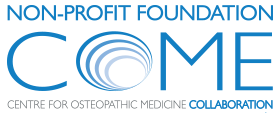Historical Osteopathic Principles and Practices in Contemporary Care: An Anthropological Perspective to Foster Evidence-Informed and Culturally Sensitive Patient-Centered Care: A Commentary
Historical osteopathic principles and practices (OPP)—considering the patient as a dynamic interaction of the body, mind, and spirit and incorporating the body’s self-healing ability into care—are inherited from traditional/complementary and alternative (CAM) principles. Both concepts are familiar to contemporary osteopathic practitioners, but their incorporation into healthcare for evidence-informed, patient-centered care (PCC) remains unclear. Further, a polarity exists in the osteopathic profession between a ‘traditional-minded’ group following historical OPP despite evidence against those models and an ‘evidence-minded’ group following the current available evidence for common patient complaints. By shifting professional practices towards evidence-based practices for manual therapy in line with the Western dominant biomedical paradigm, the latter group is challenging the osteopathic professional identity. To alleviate this polarity, we would like to refocus on patient values and expectations, highlighting cultural diversity from an anthropological perspective. Increasing an awareness of diverse sociocultural health assumptions may foster culturally sensitive PCC, especially when including non-Western sociocultural belief systems of health into that person-centered care. Therefore, the current medical anthropological perspective on the legacy of traditional/CAM principles in historical OPP is offered to advance the osteopathic profession by promoting ethical, culturally sensitive, and evidence-informed PCC in a Western secular environment. Such inclusive approaches are likely to meet patients’ values and expectations, whether informed by Western or non-Western sociocultural beliefs, and improve their satisfaction and clinical outcomes … MORE







